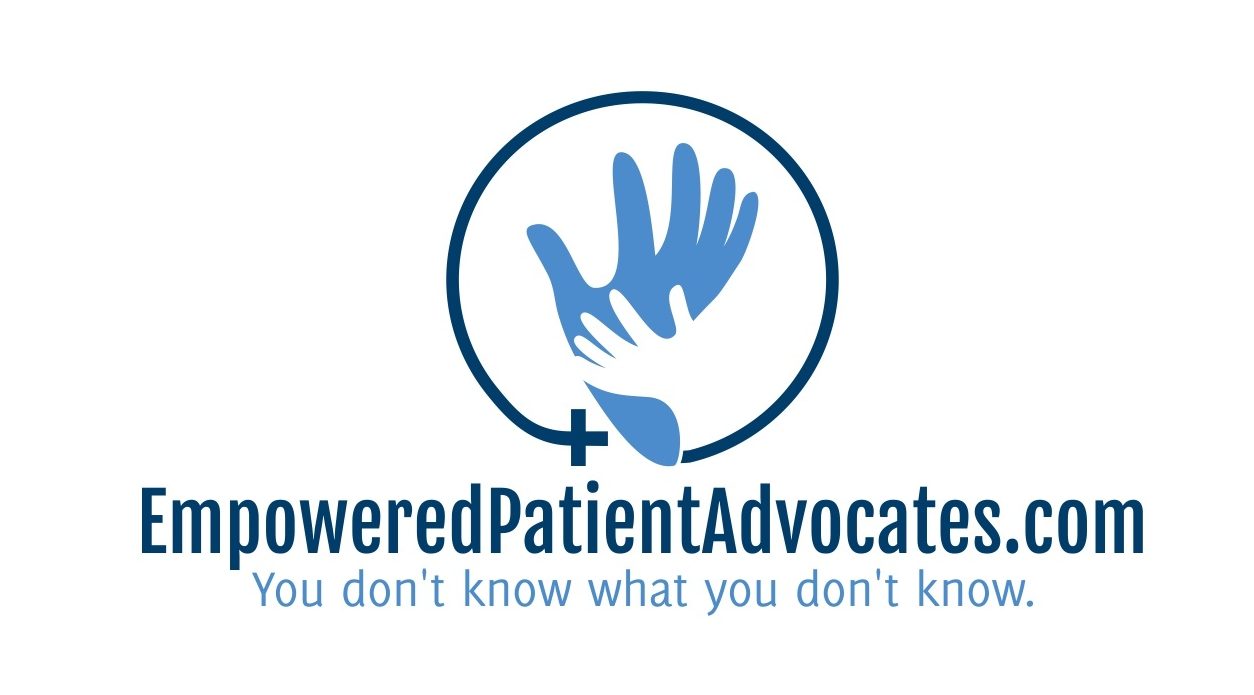When The Caregiver Is The Patient – Thyroid Cancer
When we introduced ourselves, we shared that we have been caregivers… and patients. One of the things that I, Amanda, have battled is Papillary Thyroid cancer. On September 27 2016, my mother and I were in a car accident. When we went to the hospital, the doctor ordered a CAT scan for me because I have neck damage from prior accidents. I was fine with him being overly cautious because you only get one neck, and it is a big deal when it breaks! The doc came back, sat beside the bed, and said “I have good news and bad news… your neck is fine. But you have a lump on your thyroid. It could be cancer so I recommend you get it checked out right away.”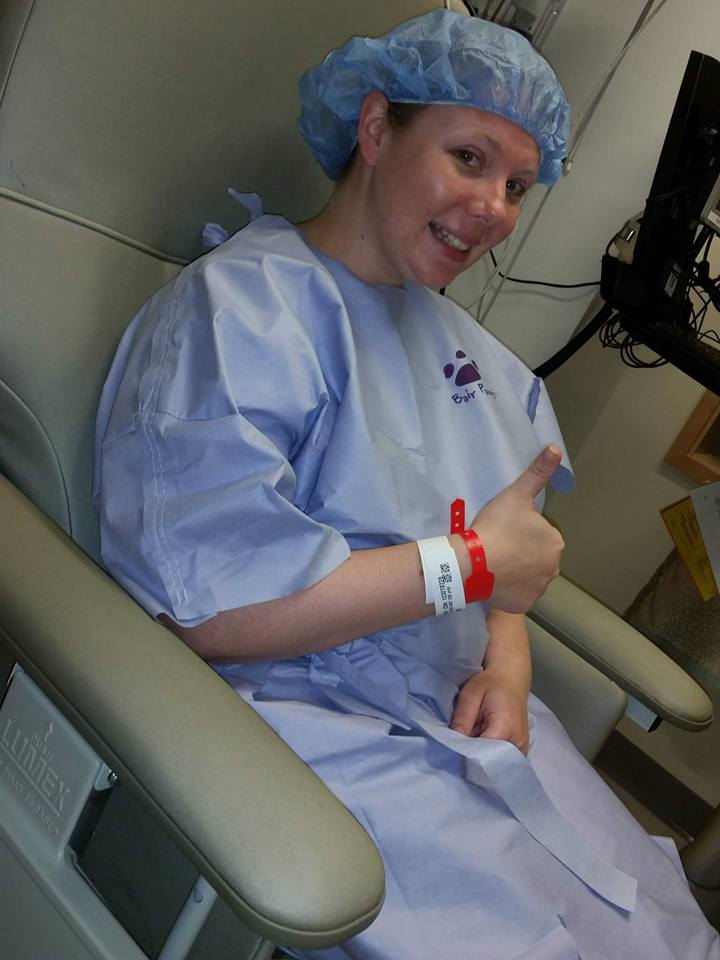
The “C” word
In doing research, like I always do, I found that the chances of it being cancer were really quite low! We kept an optimistic mind when my family and I went to the primary care physician to get a referral. She laughed and said “it is probably nothing, everyone gets nodes.”
When I went to the endocrinologist, he had the same reaction. He said don’t worry, this is nothing. You will be fine. “Everyone gets nodes.” On a side note, the biopsy isn’t the most comfortable thing in the world. The numbing agent is uncomfortable, and the needle pulsing in and out of your neck while they collect tissue… well it leaves so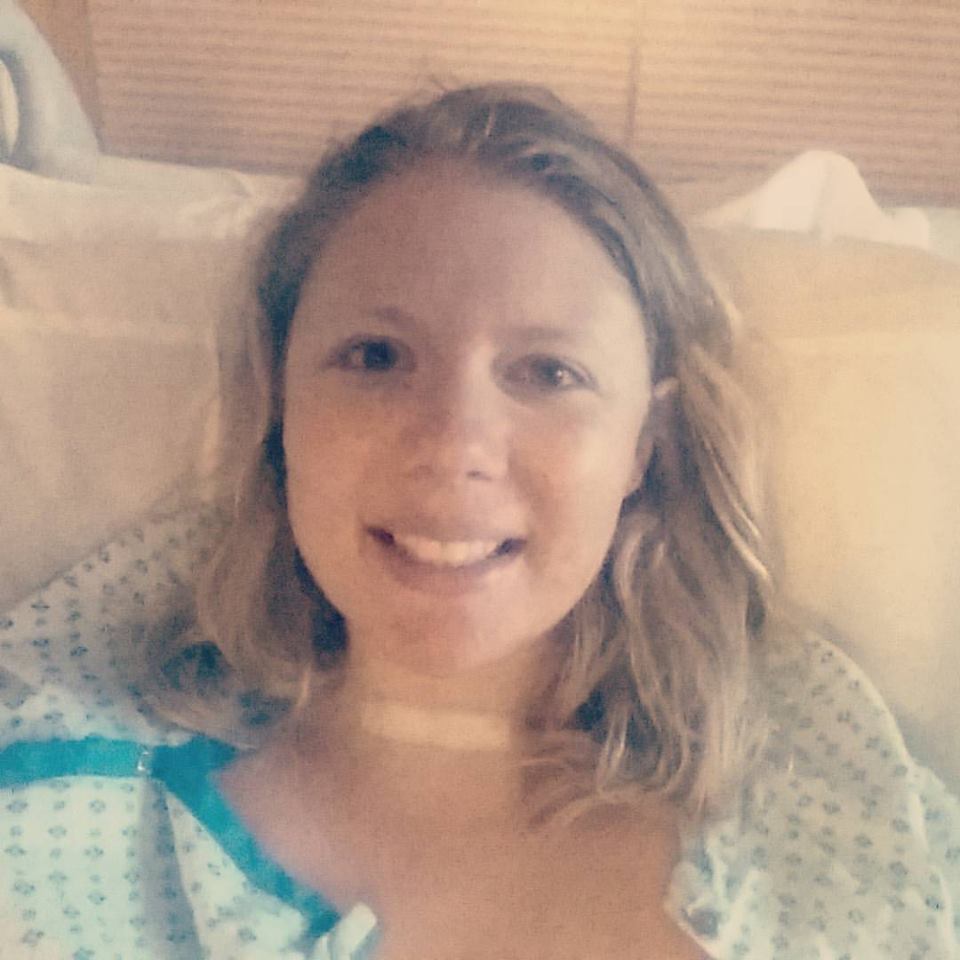 mething to be desired. I did the biopsy, I did more ultrasounds, and two days before Thanksgiving, they told me I had cancer.
mething to be desired. I did the biopsy, I did more ultrasounds, and two days before Thanksgiving, they told me I had cancer.
Within a week, I had met with a surgeon, and by December 11, I had my total thyroidectomy. I was a patient advocate for myself, with the strength to be powerful coming from my family. I “demanded” that I go to a top hospital instead of the local, and it could not have gone better. To this day, I still get compliments on my scar! My doctor was borderline cocky during our consultation, but ya know what, in my opinion, she has earned the right to be cocky. By December 18, 2016, my doctor declared me cancer free! Just think about that for a second. In two and half months, I went from getting a CAT scan after a car accident, to having cancer, to being a cancer survivor! What a whirl-win! 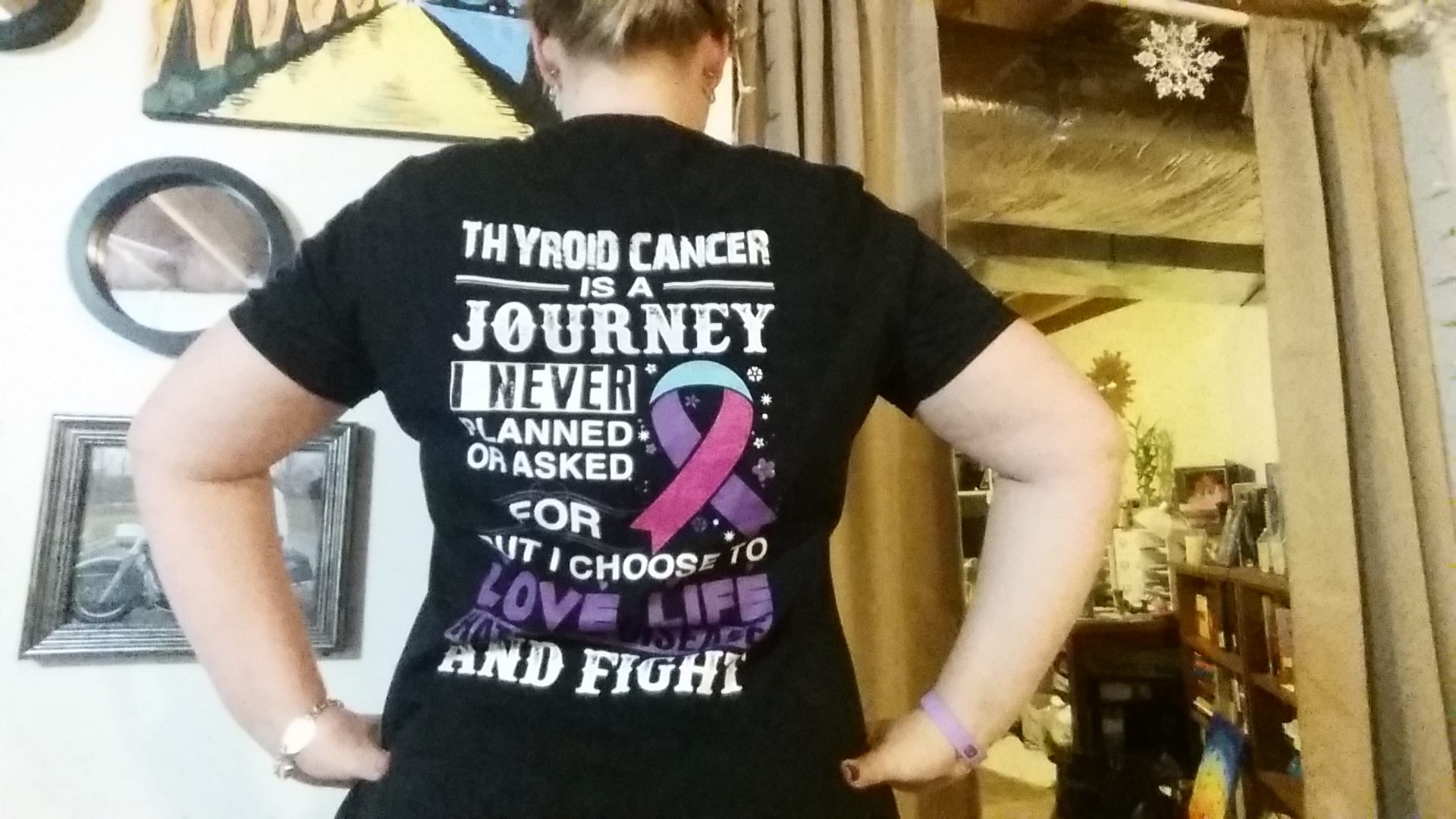
Now time for the BATTLE
What I didn’t know was that for thyroid cancer – the battle hadn’t started yet! Let’s just start by saying, 99% of your organs do, in fact, serve a purpose. And while they have figured out to “replace” your thyroid hormone, it is not as good as the original organ! When I first got out of surgery, they started me on a T3 hormone. (Quick lesson, your thyroid produces T4 which your brain converts to T3, which regulates most other hormones – hair growth, anxiety, depression, sleep, libido, metabolism etc). When you are fresh out of surgery, they give your body T3 to make it easy. At some point after meeting with the endocrinologist, the medication will get switched to T4. This takes a while for your body to convert, which means for a while, its like not having enough of the thyroid hormone. Unfortunately for me this was right around Christmas. I needed several naps a day. I didn’t feel like working out. And I was quite uninspired.
When the new T4 medication started kicking in, and my body started converting on its own, I started to feel better. But here is another science lesson. Thyroid cancer can only grow in thyroid cells. If your body thinks it is producing too much thyroid hormone, t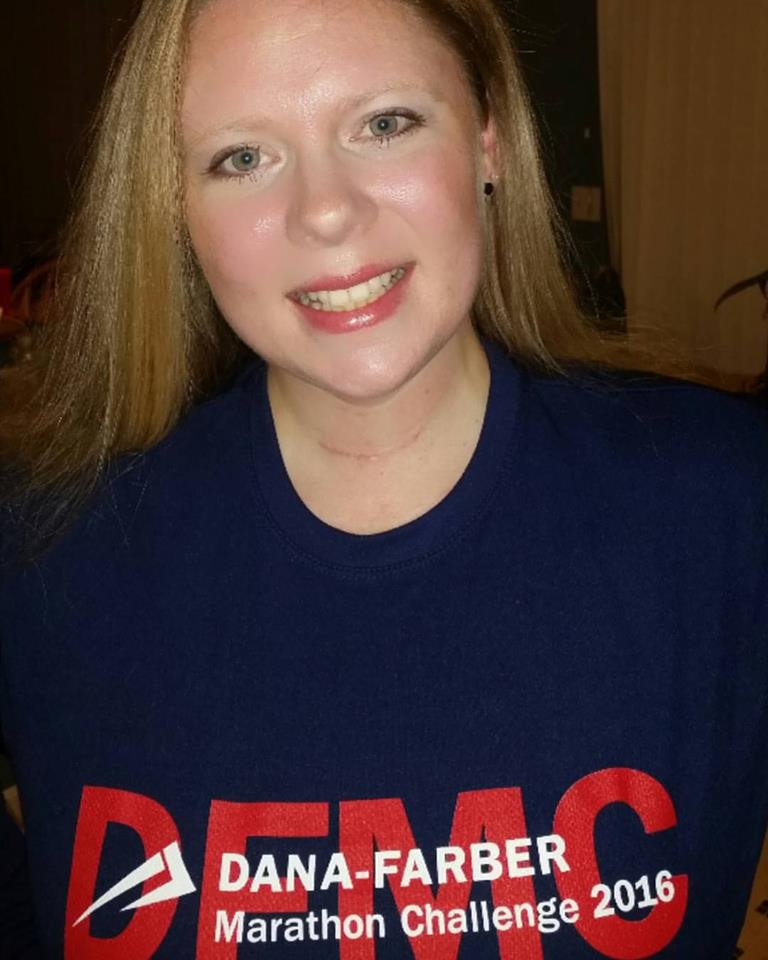 hen it sort of kills off some thyroid cells, because it thinks it is too much. Our bodies are really that way – working really hard to regulate us. The endocrinologists have figured out that if they make you hyperthyroid, the cells will die off and will not be able to harbor cancer cells. This means anxiety, insomnia, hair loss, ravenous appetite etc. So as the endo kept increasing my meds, my symptoms got worse. For several months, I slept very little, yet was exhausted, I was starving, yet didn’t have energy to work out, was very anxious and couldn’t concentrate. Everything is still a work in progress, and I am still on my journey!
hen it sort of kills off some thyroid cells, because it thinks it is too much. Our bodies are really that way – working really hard to regulate us. The endocrinologists have figured out that if they make you hyperthyroid, the cells will die off and will not be able to harbor cancer cells. This means anxiety, insomnia, hair loss, ravenous appetite etc. So as the endo kept increasing my meds, my symptoms got worse. For several months, I slept very little, yet was exhausted, I was starving, yet didn’t have energy to work out, was very anxious and couldn’t concentrate. Everything is still a work in progress, and I am still on my journey!
If I have learned anything throughout this process, it is that you have to be your own advocate.
1. Keep a journal! It is so hard to keep track of dosage amounts, symptoms, diet, sleep etc. Especially when everything is changing! If you keep a journal and make notes of your dosage, how you are feeling, whether you have made any changes to your diet or lifestyle, it is much easier to keep track of what is working.
2. Seek second opinions. Thyroids are very controversial. There are many doctors that believe the synthetic drug is the almighty, and you should be perfect while taking it. WRONG. There are so many reasons why that could be wrong. There are some people out there whose brains can’t convert the synthetic T4 to T3. Which means they could be taking the hormone, but their body doesn’t know what to do with it, so they still show symptoms of a slow thyroid (weight gain, exhaustion, low appetite, depression). There are also some people out there who are allergic to the synthetic drug. There are other options out there, there are natural hormone replacements. Take charge of your health and find a doctor that will work for you!
3. Do your research. This stuff is complicated! But it is so hard to understand what is going on with your body or what your doctor is talking about if you don’t know how it works.
4. Join support groups. I have joined a few support groups on facebook. There are so many people out there who have had similar experiences… why would I want to reinvent the wheel when there are people out there who have already gone through so many of these struggles. I’m not suggesting following their untrained advice, but it can be really helpful to hear what other people have to say. They also know what you are going through. So when everyone else looks at you and says “At least you have a good cancer…” the support group will be there for you when you just want to vent about your meds, or ask about your symptoms.
